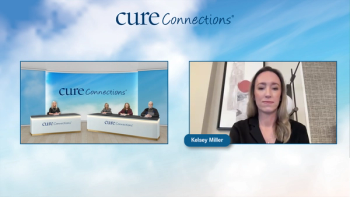
Locating Metastatic Breast Cancer Clinical Trials
The panel discusses resources available for locating relevant clinical trials for patients with metastatic breast cancer.
Episodes in this series

These are the experiences and opinions of panelists, not physicians.
Shirley A. Mertz, MA, JD: When we look at a trial or if you're asked to join a trial, it gives you the opportunity then to make a difference in finding maybe a new treatment for a particular subtype that someone might need if they have a progression. I think that clinical trials are so important to all of us- our future, so I applaud people like you, Sheila, and you Lisa, who have been in trials because your information then is being recorded and can lead to the development of a new drug. Sheila, do you feel that - well, we have talked about the importance of having more people of color represented in clinical trials. What do you think we could do to get women of any color to try to find out more about clinical trials if their oncologist does not mention that? Do either you Sheila or Lisa have any suggestions of how they could do that?
Sheila McGlown: Well, clinical trials.gov is very hard to navigate. That's just a suggestion, but it's very hard to navigate to find out what kind of trial - I've always said, "Your oncologist is your first line of-"
Shirley A. Mertz, MA, JD: And he or she is. Lisa, did you want to add any other way of finding?
Lisa Laudico: Yes, I just totally agree with Sheila. On most days that's my go-to. I just agree with Sheila. I would also recommend; I do agree that clinicaltrials.gov as a government-run site is a little unwieldy. But Metastatic Trial Talk, which you can locate from Metastatic Breast Cancer Alliance website, for example, you can just Google metastatic trial talk. That's an excellent tool. It's more user-friendly and they actually populate their database and their whole system directly from the government. It's like information that comes from all the different research institutions are all also in the metastatic trial talk database and so I would encourage people to do that. Sometimes your oncologist maybe thinking about what they seem to be doing all the time for all their patients in this subtype and there's nothing wrong with that. Standard of care is standard of care for a reason because it's worked well. However, I would say that, as you've said Shirley countless times, that know your subtype, know your body. Know what you're able to handle as well but then really understand where metastatic breast cancer is going and there's a number of places to do that. The Alliance, Metastatic Breast Cancer Alliance is an exceptional resource. It's like a one-stop shop, if I can say that, where you can find out what everyone's doing and where all the information is, and then you can start digging in. It's just a super place to go. That's what I would recommend. But don't wait on a clinical trial is also another message I would like to say. I went on a clinical trial. My second line of treatment was a clinical trial.
Shirley A. Mertz, MA, JD: OK. Let me just refine one thing that you said. That you're right, there is a site called metastatic breast cancer talk. It's made out like in a Tic Tac Toe form. You know what I'm saying? The lines. Well, anyway, it has information about metastatic disease and then part of it is the trial search. You don't need to go to trial talk, you could go directly to something called metastatic breast cancer trial search. OK? It's on, for example, the breastcancer.org website, the Alliance website. What you do there- I just want to explain to people. If you're a little hesitant, you could tip your toe in the water, and what I'll ask you is, are you menopausal or not? Where are your metastases? Then you can check your liver, bones, whatever. Let's see, what is the other thing? Oh, what is your subtype? OK? So, you need to know that. I think there's one other simple question. But you do this online, and you push send, so it goes directly to them. And as Lisa has just pointed out, the people who devised this wonderful trial search, I have connected to them all the metastatic breast cancer trials that are on the complicated system, cancer.gov clinical trials. It's complicated because it uses all kinds of medical terms. Then once the trials search people get your input, they will send back to you those clinical trials that they feel you might qualify for, and you could read through them and see what they are asking you to do. You could save some, reject some, whatever. Oh, I know what else it'd ask you. It'd ask you where you live and how far you might be willing to travel to a trial, because sometimes you have to do things in person. But I think the key value of this is you could take this list of trials that you might qualify for into your oncologist and say, "I got these, what do you think of them?" If that oncologist says, "Oh, I don't do trials," or, "You don't need that," ding, ding, ding, ding, time to get a second opinion and maybe a different oncologist. I don't know how all you feel, you are younger than I am. But when I grew up, I was told I always must obey my teacher, I must always obey my pastor- priest, and I must always obey what my doctor says. There was a hesitation when I was first diagnosed with metastatic disease to even get a second opinion. In the end, when the disease went to my liver, I got motivated to find a different doctor. And it was the best thing I ever did. I'm just saying, if you want the best care do not hesitate to get a second opinion, do not hesitate to ask about a clinical trial. It's not the end of your life. And you will be contributing to the good of other people.
This transcript has been edited for clarity.




